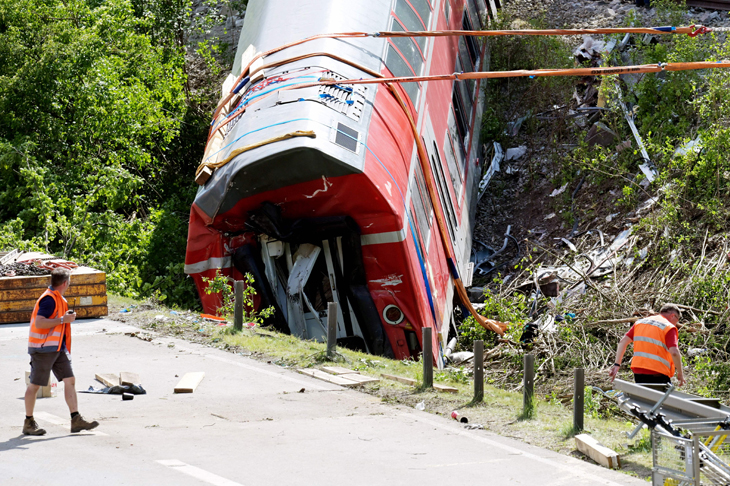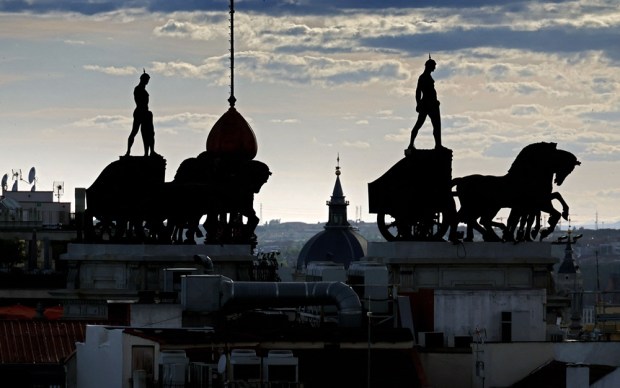Beyond any doubt, the most enthralling aspect of politics and government is the trainwreck interview. It is pretty much like watching a rattle-snake. You are drawn between, on the one hand, the menacing presence of something horrifying and threatening that might turn on you at any minute and, on the other, a disbelief that there could be anyone so appallingly and embarrassingly silly as to be mouthing the nonsense that comes across in your average trainwreck interview. Some such interviews are so bad that you end up feeling sympathy for the victim and how he or she came to be trapped in this nightmare and you wonder how they will ever get out of it, until they make it worse by coming up with even more insane drivel, as they dig a deeper hole to fall into. And finally, you find yourself echoing Joseph Conrad’s Kurtz in Heart of Darkness: ‘The horror! The horror!’
I have seen some terrible trainwreck interviews. The recent exchange with Prince Andrew was one of the worst, as he veered from grasping at one clearly false excuse for his licentious behavior to another equally unbelievable explanation, where any connection it had with the honest truth must have been purely coincidental. The damage he did to the monarchy was immense and it had as much significance in that regard in this country as it had in the UK.
Another example where I still bear the mental scars of actually watching the trainwreck as it unfolded and as the metaphorical carriages crashed into each other and careered into the valley below, was an encounter between an intrepid reporter from Newsweek magazine and our sometime illustrious prime minister, William McMahon. This renowned statesman, being incapable of holding more than one feeble thought in his head at any given time, had taken the precaution of having his proposed fatuous remarks written out on a series of cards, with headings like ‘economy’ and ‘defence’ that would provide ready answers to the questions the journalist would probably ask. Unfortunately, the Newsweek man asked him the far more generic question about how he saw the future of Australia. McMahon fingered his way through his cards and then, unable to find one labelled ‘future’, and adopting the disposition of a rabbit trapped in the beam of a spotlight, replied, ‘There’s no future here.’ Newsweek had its trainwreck story: PM sees no future for Australia!
And just to show you how even-handed I am, I joined in the general hilarity when the Labor party’s John Kerin was sacked as Treasurer for not knowing what GOS stood for (Gross Operating Surplus, stupid), a great leap forward for the mumbo-jumbo of Keynesian economics.
I never thought I would live to see the day where a politician would give an interview worse than Mc Mahon’s. But, illustrating the proposition that politicians can always sink below your lowest expectations, one of them has just achieved that remarkable feat. In fact, I had thought that the days of the real trainwreck interview had passed forever until I saw the shadow finance minister, Senator Jane Hume, being interviewed on Insiders the other day.
The discussion started with her unique proposition that the proposed ending of the reduction in petrol excise, that the Coalition itself had introduced, was solely the government’s business and not the opposition’s. But, the good senator was asked, bearing in mind that the opposition would have to vote on the measure, was it nevertheless the opposition’s policy to agree with it? Answer: that was a decision for the government to make. But was it also the opposition’s policy? ‘We are not in government anymore, so it is their policy to make.’ But did the opposition not have a policy at all on this subject? ‘Well, my view is that the government will make its decision.’ Then in a final gem, she observed, ‘We don’t have policies, we are in opposition’.
Perhaps she was channelling the hospital with no patients in Yes, Minister.
The result of this gobbledegook is that the opposition’s view seems to be that all policies are made by the government and that the opposition does not have or need any policies on anything. Measuring it on the Richter scale of trainwrecks it was, if you will excuse the mixed metaphor, ‘Titanic meets iceberg.’
Due to this unique encounter, Senator Hume has thus cemented in the public psyche the notion that the Coalition has no policies and that that is a situation with which she and her party are going to live with and one with which they are apparently content. And it is not as if she is some lowly backbencher. She is Liberal party royalty and in the order of succession is the Princess Charlotte of the party, being the fourth-most senior shadow cabinet member and her voice must count for something. So here we have it, a major political party that has been in government more than any other party, a party that recently lost its way and was roundly rejected, but one that is now allegedly soul-searching to find what it believes in, has now revealed the fact that it has no policies and does not regard it as its duty to formulate any or to advocate for them in public.
What does this trainwreck tell you about the Liberal party today? That an opposition should have no policies is bad enough. But, more worryingly, it also means that it has no beliefs. And that just about sums up today’s Liberal party. Perhaps they should re-name it the Seinfeld party: the party about nothing.
But, fortunately, politics today does have its occasional brighter spots and here is one for the ages. At the United Nations Security Council meeting last week, the cowardly Russian foreign minister stalked out of the chamber as soon as he finished his speech, to avoid a maelstrom of criticism from the entire civilised world that was about to descend on him. The Ukrainian ambassador quipped: ‘Russian diplomats are the only people who can retreat faster than the Russian army.’
Well said.
Got something to add? Join the discussion and comment below.
Get 10 issues for just $10
Subscribe to The Spectator Australia today for the next 10 magazine issues, plus full online access, for just $10.
You might disagree with half of it, but you’ll enjoy reading all of it. Try your first month for free, then just $2 a week for the remainder of your first year.















Comments
Don't miss out
Join the conversation with other Spectator Australia readers. Subscribe to leave a comment.
SUBSCRIBEAlready a subscriber? Log in